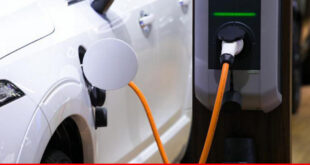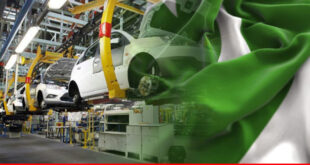The industry views it as a balanced policy with certain reservations
The approval of auto policy 2016-21 by the Economic Coordination Committee (ECC) is aimed at removing uncertainty with regards to future duty structure and investment incentives in the automobile sector of Pakistan.
In this regard, the Chief Operating Officer (COO) Indus Motor Company, Mr. Ali Asghar Jamali while reviewing the Auto Policy 2016-2021 approved said that Automotive Development Policy (ADP) 2016-21 is a `balanced` policy, and we hope that it will help kick-start growth and provide more choices to consumers.
However, if the policy had given similar incentives to existing players on new models and variants, immediate investment of billions of rupees could have been materialized.
The auto sector of Pakistan is fortunate to have four of world’s top 10 car manufacturers and we hope that the new policy would help bring back brands that exited due to previous inconsistent policies.
Pakistani market has huge potential as only 16 out of 1,000 people in Pakistan currently own a vehicle as compared to 18 in India, 30 in the Philippines, 69 in Indonesia, 206 in Thailand and 361 in Malaysia.
Automobile policy 2016-21
The Economic Coordination Committee has recently approved the Automotive Development Policy (ADP) 2016-21 which is aimed at strengthening of the medium-term positive prospects of the auto sector.
The absence of investment incentives for the existing auto makers in the recently approved policy has however raised eye brows of some of the leading players in the auto sector which is an aspect that may cause continued uncertainty till implementation of ADP from July 1st, 2016, felt by industry circles.
However, the positive side of the policy would certainly help improve the regulatory environment by removing the backdrop of uncertainty with regards to future duty structure and investment incentives.
The most exciting prospect resulting from the Automotive Development Policy (ADP) is an invitation to the potential new investors which may bring an end to the ruling impact in the local market of the existing auto assemblers.
In terms of sales number, the market is dominated by economy class smaller cars like Mehran of Suzuki Motors enjoying the major share of the market in Pakistan. The arrival of new players may give a dent to this monopoly status as most of the new comers are likely to begin with smaller cars.
The implementation of auto policy is expected to pave the way for the pending expansion plans of the existing players in the medium-term as the leading auto players like Indus Motors, Pak Suzuki and Honda Motor may revisit their existing models to add more attractions for the buyers.
According to industry circles the Pak Suzuki is reportedly replacing its Cultus with a new version to attract the market.
Presently the automobile market is dominated by following three major players including Pak Suzuki Motors, Indus Motor Company and Honda Atlas:
PAK SUZUKI MOTORS: Pak Suzuki Motors is currently the market leader in Pakistan, with over 60% of market share and complete dominance of the small car sector. Pak Suzuki Motors was founded in September 1982 as a joint venture between the Government of Pakistan and Suzuki Motor Company Japan, formalizing the arrangement by which Awami Auto Ltd had produced the Suzuki SS80 from 1982. Suzuki originally owned 25% of the stock, and has gradually increased their holding; they now own 73.09%. Pak-Suzuki was a joint venture between the state-owned Pakistan Automobile Corporation (PACO), who had earlier overseen local assembly from kits.
INDUS MOTOR: Indus Motors is a joint venture between the House of Habib and Toyota Motor Corporation, Japan (TMC), and Toyota Tsusho Corporation, Japan (TTC) for assembling, progressive manufacturing and marketing of Toyota vehicles in Pakistan since July 1, 1990.
Indus Motor Company are manufacturers, assemblers, distributors and importers of Toyota and Daihatsu vehicles, spare parts and accessories in Pakistan.
HONDA ATLAS: Honda Atlas Cars is a joint venture between Honda Motor Company Limited, Japan and the Atlas Group, Pakistan. The company was incorporated on November 4, 1992 and a joint venture agreement was signed on August 5, 1993.
Incentives to new entrants
One of the policy decisions indicates that the existing players will not share the same incentives as new entrants. Even as the key points of the new policy imply less excitement for the existing players, it is believed that the auto assemblers’ future expansion plans may be facilitated with the auto policy in place.
The new policy which offers incentives to new entrants, include lowered 10% CKD duty on import of non-localized parts, and 25% duty on localized parts for a period of four years for cars above 800cc. Similar incentives apply to investors looking for investment for revival of existing non-operational facilities or those that were closed before June-2013.
This attractive incentive should be attractive for certain players either under performing or have closed their operations. In this respect one of the emerging players Ghandara Nissan is looking for revival of its assembly line for passenger car while Dewan Farooq Motors who had closed their production line of Santro, which had managed to grab a considerable share of the market likely to start production of Santro cars.
The expansions along with potential new entrants will come in timely, in the next 3-5 years, as the economy moves to a higher aggregate demand stage. Reduction in duty on Completely Knocked Down (CKD) units: The ADP allows reduction in CKD duty on non-localized parts from current 32.5% to 30% flat up to 2020, and on localized parts from current 50% to a constant level of 45% till 2020.
The new automobile policy which is mainly focusing on fresh investment seems as a well timed decision to cater to future demand of vehicles in Pakistan on the back of positive economic momentum in the country.
Although the policy is sure to expand industrial base in the country yet to attain the economy of the scale in this sector the policy makers should also focus on finding export markets for cars to scale up the size of production and to bring price stability in this sector.
We should tap the markets of the countries which have a Free Trade Agreement with Pakistan.
 PAGE Blog Business Weekly Magazine
PAGE Blog Business Weekly Magazine

